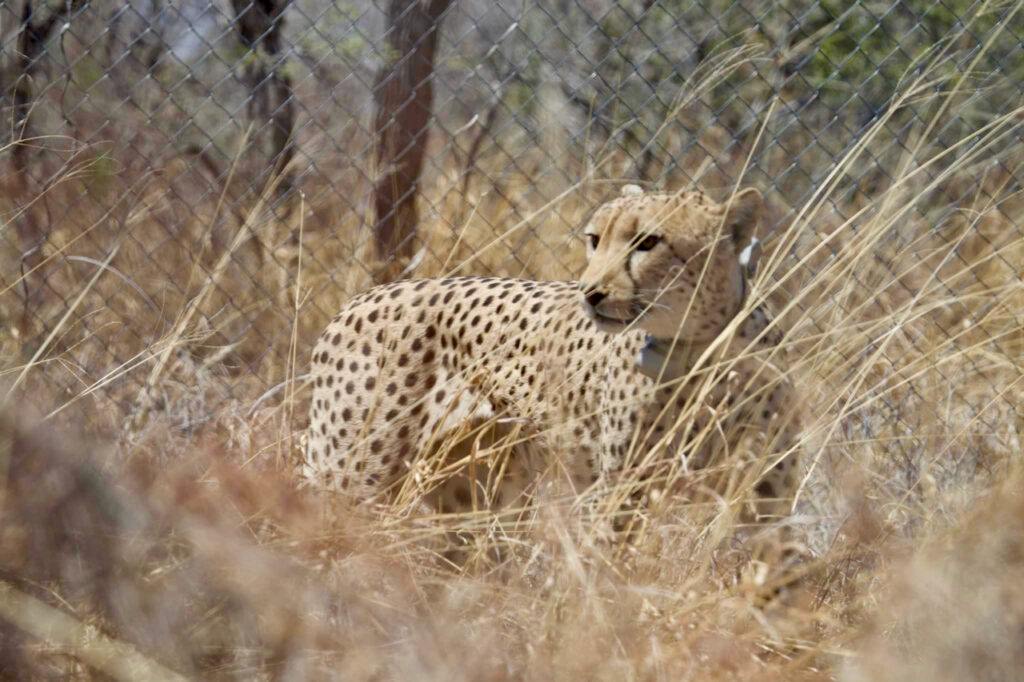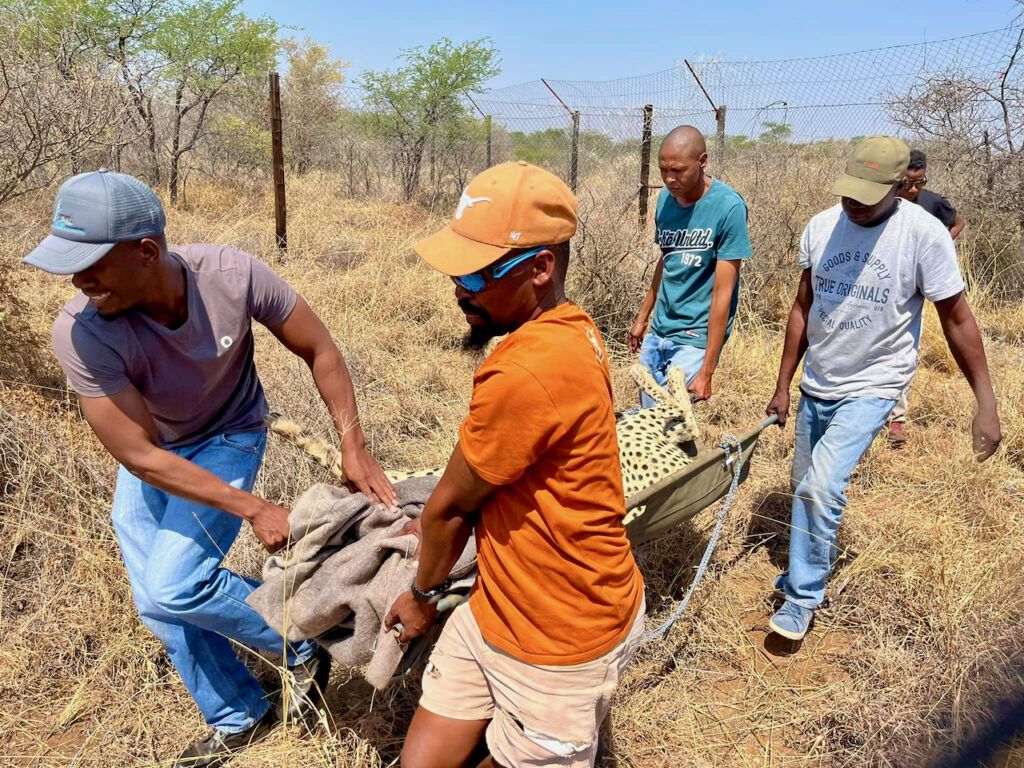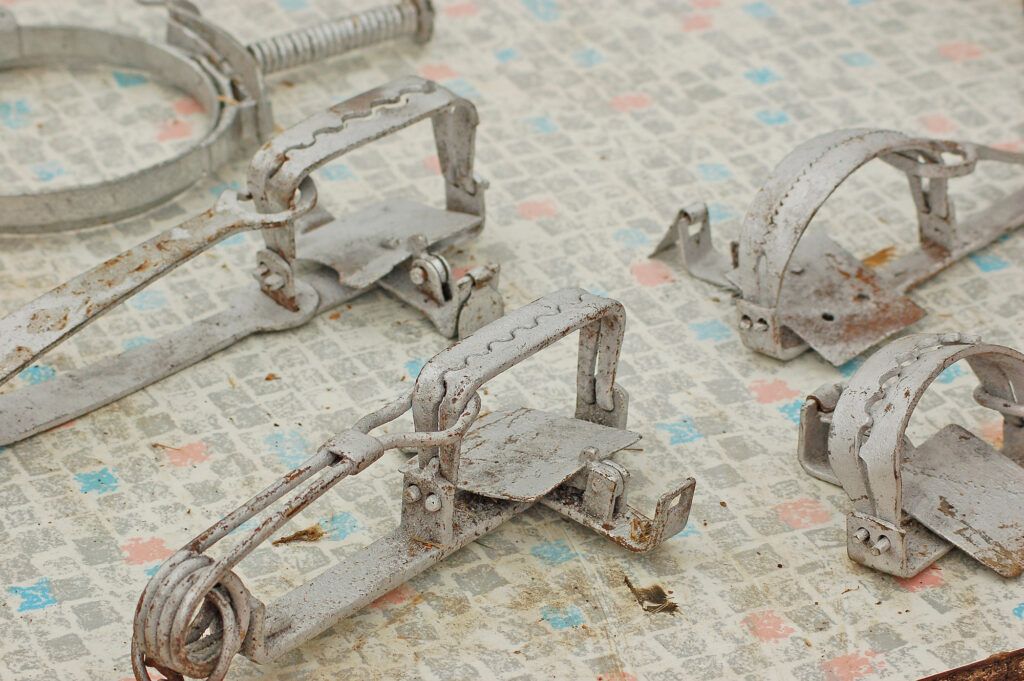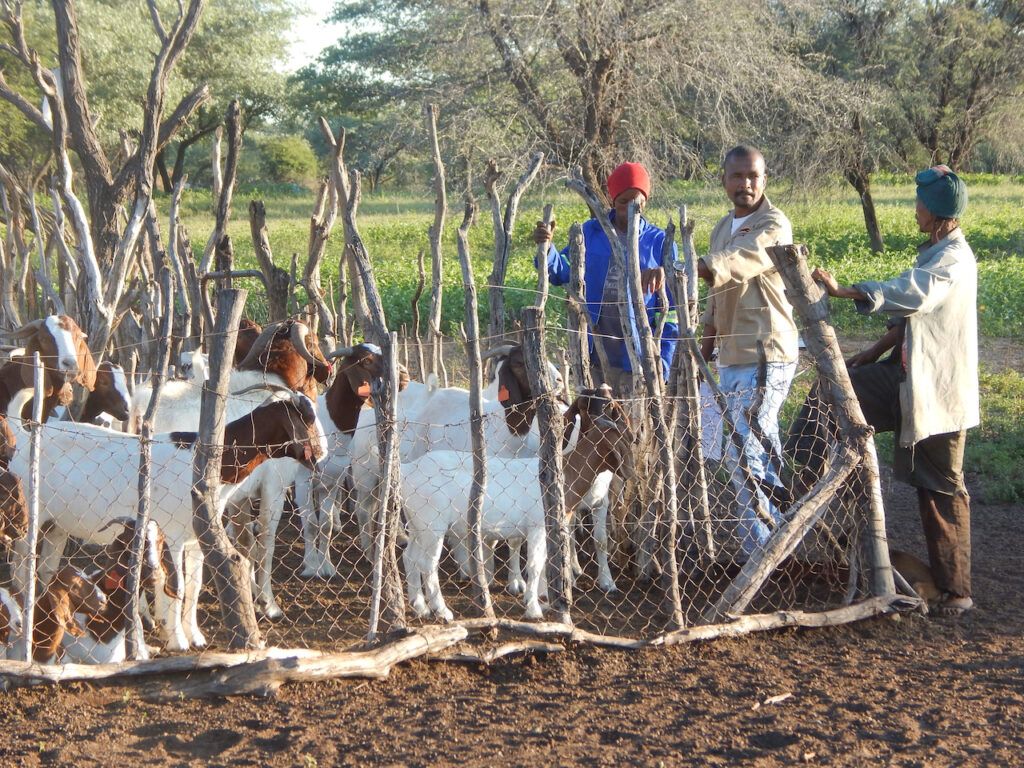The farmer’s wife greeted Cheetah Conservation Botswana’s (CCB) rapid response unit as they approached the homestead, heralded by a choir of bleating sheep. Her husband had reported that he’d caught a cheetah prowling near his livestock that September morning. This cheetah, Ashton, was one of several GPS-collared and monitored by CCB. His GPS location had not moved in the past day, so they were relieved to know he was still alive and not another casualty of Botswana’s rising human-cheetah conflict. But as the team examined the farmer’s catch, their relief evaporated under the midday sun—Ashton had been snared in a gin trap, and his wound looked severe.
Livestock are the very livelihood of farmers, who often kill any carnivores that might target their herds. Botswana contains more cheetahs than any other country, yet 77% of these cats live outside of protected areas with their range overlapping farmlands. In portions of the Ghanzi District, where Ashton was captured, poor cattle management has led to overgrazing and unproductive rangelands. This leads to fewer wild prey and weakened livestock, and thus more livestock predation from carnivores. To mitigate human-cheetah conflict, which had increased significantly since July 2022, CCB monitors collared cheetah movements daily to anticipate where they might clash with farmers and intervene before blood is shed.
Ordinarily, CCB assists the Department of Wildlife and National parks with relocating and collaring cheetahs caught in humane cage traps on farmlands. But this farmer had unfortunately used gin traps—metal contraptions that snap like jaws around an animal’s leg, often causing serious injuries—without CCB’s knowledge. The CCB team quickly moved Ashton to their rehabilitation facility so a veterinarian could treat his lacerated paw. Thankfully, the wound was less serious than originally thought, with no major damage to his bones or tendons. Ashton was given antibiotics and released in the Central Kalahari Game Reserve after 10 days of observation. His collar allowed CCB to continue monitoring his movements, which returned to normal after a few days. Ashton seemed to have recovered, until his GPS position stopped moving again. Worried, CCB’s response unit ventured deep into a remote corner of the Reserve to locate him. Despite receiving proper care, Ashton had succumbed to infection from the injury.
It’s unclear if Ashton was responsible for the 19 killed sheep that caused the farmer to set gin traps on his land, but CCB knew the only way to prevent further cheetah losses was to help this farmer save his sheep. They returned to his land, helping him improve his farm management practices and sheep enclosures to deter predators. Since September, these interventions have prevented any further livestock predation. The farmer has also removed all gin traps from his land and has committed to never use them again. CCB intends to give the farmer a dog from their Livestock Guarding Dog program, which has proven very effective at protecting livestock from cheetahs and making peaceful coexistence possible.
With the memory of Ashton ever present, the CCB team continues to provide Botswana’s farmers with mobile workshops that teach cheetah-friendly farming techniques and sustainable land management. By keeping their farms safe and productive, CCB hopes to protect farmer livelihoods and the lives of cheetahs.
Support Cheetah Conservation Botswana





1 Comment